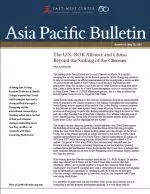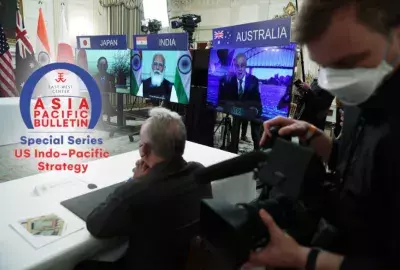Error message

The sinking of the South Korean navy vessel Cheonan on March 26, 2010 is rapidly changing the security landscape on the Korean peninsula. While Pyongyang continues to deny its involvement, an official announcement of the investigation's results on May 20 clearly points the finger at North Korea. One of the most important security implications from this incident is that it has forced South Koreans to think hard about how China is likely to react to a North Korea contingency, such as a succession crisis in North Korea. From a U.S.-ROK alliance perspective, this is a time to address the lack of shared vision on how to cooperate with China. Ji-Young Lee discusses the Cheonan incident and how the United States and South Korea can cooperate with China on North Korea beyond the incident. The views expressed in this publication are those of the author and do not necessarily reflect the policy or position of the East-West Center or any organization with which the author is affiliated. |
The sinking of the South Korean navy vessel Cheonan on March 26, 2010 is rapidly changing the security landscape on the Korean peninsula. While Pyongyang continues to deny its involvement, an official announcement of the investigation's results on May 20 clearly points the finger at North Korea. One of the most important security implications from this incident is that it has forced South Koreans to think hard about how China is likely to react to a North Korea contingency, such as a succession crisis in North Korea. From a U.S.-ROK alliance perspective, this is a time to address the lack of shared vision on how to cooperate with China. Ji-Young Lee discusses the Cheonan incident and how the United States and South Korea can cooperate with China on North Korea beyond the incident. The views expressed in this publication are those of the author and do not necessarily reflect the policy or position of the East-West Center or any organization with which the author is affiliated. |







